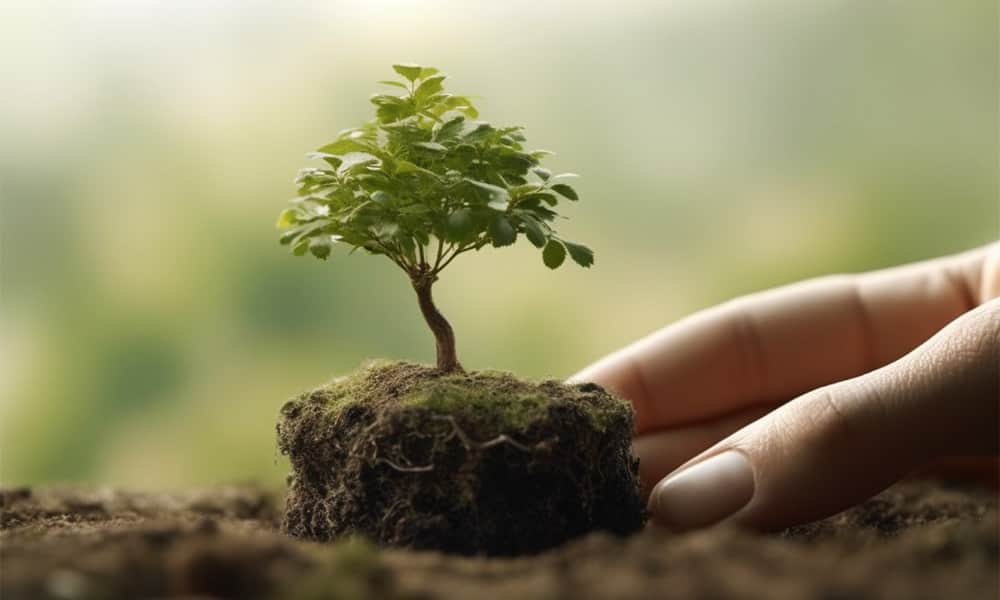SANTA MARÍA DE DOTA, San José – Thick forests cover the hillsides of César Vindas’ property. Down the hill a small area of land is cleared for trout ponds, plum orchards and dairy pastures. The remaining 105 hectares are filled with trees the Costa Rican government pays him to maintain.
Many residents go the extra mile in Costa Rica to decrease their carbon footprint by recycling or shopping locally, but in the end, to live in today’s world, harmful greenhouse gases will be produced.
Trying to make good on Costa Rica’s goal to become carbon neutral is the National Fund for Financing Forestry (Fonafifo). Fonafifo is the country’s leading carbon offset provider, creating the means for the country to target carbon neutrality.
The organization operates numerous projects to protect and expand the country’s forests, thus increasing carbon sequestration to prevent carbon dioxide from escaping into the atmosphere. The Environmental Services Payment program (PSA) pays landowners $64 per hectare per year to maintain forests. Other programs reimburse farmers to protect water sources on their land or reforest areas that have been cleared.
Vindas purchased his farm in Santa María de Dota, a coffee town in Los Santos region in southern Costa Rica, 28 years ago. He built his home from the ground up, living for many years without electricity while he worked on his house and weathered the ups and downs of good and bad harvests. Today, he has a beautiful farmhouse full of his wife’s flowering plants, with temperamental trout ponds nearby. His son lives next door and is starting a pig farm.
“This is a good program that has allowed us to keep this land forested,” Vindas said. “It’s part of our family. We hope to give a little back by protecting our trees and encouraging neighbors to do the same.”
Seated around Vindas’ kitchen table, Fonafifo employees on a recent visit discuss the program’s progress. “More than 10,000 members are enrolled in the program, with properties ranging from two to 300 hectares,” said Jennifer Hernández, who manages PSA landowner contracts. “This covers 16.7 percent of the country’s territory.”
The PSA program is funded by 3.5 percent of Costa Rica’s fuel tax, funding from the World Bank and smaller donations. Contracts to protect forests last 10 years and often are passed from generation to generation, she said. Hernández tells Vindas that with additional Fonafifo projects to protect water sources and reforest land, he could earn more funding.
Another Fonafifo program to help Costa Rica advance towards carbon neutrality is EcoMarchamo. Based on the country’s marchamo, or vehicle circulation permit, the EcoMarchamo allows drivers to offset vehicle emissions by buying carbon offsets from the program. EcoMarchamo is available to individuals and companies, and costs approximately $12 a year per vehicle. They are available at Banco Nacional.
Eric Smith, a Peace Corps volunteer staying on for a third year in Costa Rica to collaborate with Fonafifo, said companies and individuals should make efforts to reduce voluntarily carbon emissions.
“This is how each person can define for themselves how they will be responsible for their emissions,” Smith said. “Otherwise the mandatory restrictions will continue to increase.”
He also noted the country’s leading efforts to become carbon neutral: “Costa Rica is trying to write the book on how a country can become carbon neutral,” Smith said. “They have a lot of the pieces in place but are missing the leadership of the government to help pave the way.”
For Costa Rica to reach its goal of becoming carbon neutral, he said it needs strong leadership, policies and incentives that create an environment of collaboration and investment.
“Right now, large businesses are trying to lead the way, but the government has done little in creating the incentives to move transportation and the public sector in the right direction,” Smith said. “2021 is not that far off.”
One way foreigners and tourists can participate during eco-inspired travels is a program called Fly Clean. During a round-trip flight from the United States to Costa Rica, two tons of carbon dioxide are released into the air per passenger. To compensate, travelers can purchase a Fly Clean certificate offsetting their emissions. Offsetting two tons of emissions costs only $10.
Since Fly Clean was established in 2007, travelers have offset some 6,000 tons of emissions, according to Fonafifo.
Back in the canton of Dota, Vindas’ son, also named César, said he would keep protecting the forest on his father’s property when it passes to him.
“Every day there is more and more deforestation around the world,” he said. “Hopefully, if we work hard today there will be less of an environmental catastrophe facing our children.”
He hopes his two kids will leave the area, get an education and return to the farm. “Everyone deserves clean air,” Vindas, Jr. said. “To get that, we have to protect the forests.”






